When using any of the standard identity providers (Google, Facebook) after logging in and consent they redirect to my primary Identity Server and let it redirect to implicit client registered within it. How can I achieve the same behavior with another Identity Server serving as external identity provider?
My security architecture consists of two Identity Servers, primary one (v3) using the other (v4) as an external identity provider. The implicit client opens a popup with primary IdentityServer.
I have trouble with following flow:
Identity Server acting as external IdP gets stuck on endpoint:
/connect/authorize/login?client_id=primaryIdentityServer&redirect_uri=https://primaryIdentityServer.example.com/signin-oidc&response_mode=form_post&response_type=code id_token&scope=openid profile email
with error message:
Refused to send form data to 'https://jsclient.example.com/#(...)' because it violates the following Content Security Policy directive: "form-action https://primaryIdentityServer.example.com".
Primary IdentityServer configuration for external identity provider:
var opts = new OpenIdConnectAuthenticationOptions {
ClientId = "primaryServer",
ClientSecret = "secret",
RedirectUri = "https://primaryIdentityServer.example.com/signin-oidc",
Authority = "https://externalIdPIdentityServer.example.com",
ResponseType = "code id_token",
Scope = "openid profile email",
SignInAsAuthenticationType = signInAsType
};
app.UseOpenIdConnectAuthentication(opts);
IdentityServer primary registered within IdentityServer serving as external IdP:
new Client
{
ClientId = "primaryServer",
AllowedGrantTypes = GrantTypes.HybridAndClientCredentials,
RedirectUris = new List<string>
{
"https://primaryIdentityServer.example.com/signin-oidc"
},
ClientSecrets =
{
new Secret("secret".Sha256())
},
AllowedScopes =
{
IdentityServerConstants.StandardScopes.OpenId,
IdentityServerConstants.StandardScopes.Profile,
IdentityServerConstants.StandardScopes.Email
},
AlwaysIncludeUserClaimsInIdToken = true
}
EDIT: I noticed when I try to check my app permissions on /permissions endpoint and authenticate using external IdentityServer I'm redirected to permission endpoint without any issues.
EDIT: I've tried switching to implicit flow between Identity Servers. Removed secrets, code from response_type and set implicit as allowed grant type and I still receive the same error with sending post data to my js client so it seems that selected flow (hybrid or implicit) is irrelevant for this issue.
EDIT: I've checked the source of the endpoint on which the authentication process is stuck:
<form method='post' action='https://primaryIdentityServer.example.com/signin-oidc'><input type='hidden' name='id_token' value='{token}' />
<input type='hidden' name='access_token' value='{token}' />
<input type='hidden' name='token_type' value='Bearer' />
<input type='hidden' name='expires_in' value='3600' />
<input type='hidden' name='scope' value='openid profile' />
<input type='hidden' name='state' value='OpenIdConnect.AuthenticationProperties={props}' />
<input type='hidden' name='session_state' value='{state}' />
</form><script>(function(){document.forms[0].submit();})();</script>
with query parameters:
https://externalIdPIdentityServer.example.com/connect/authorize/consent?client_id=primaryServer&redirect_uri=https://primaryIdentityServer.example.com/signin-oidc&response_mode=form_post&response_type=token id_token&scope=openid profile&state={state}&nonce={nonce}
so its pretty weird why the error is:
Refused to send form data to 'https://jsclient.example.com/#(...)' because it violates the following Content Security Policy directive: "form-action https://primaryIdentityServer.example.com".
since jsclient.example.com isn't mentioned anywhere.
EDIT: Issue appears only in Chrome, not in Firefox or IE Edge.
